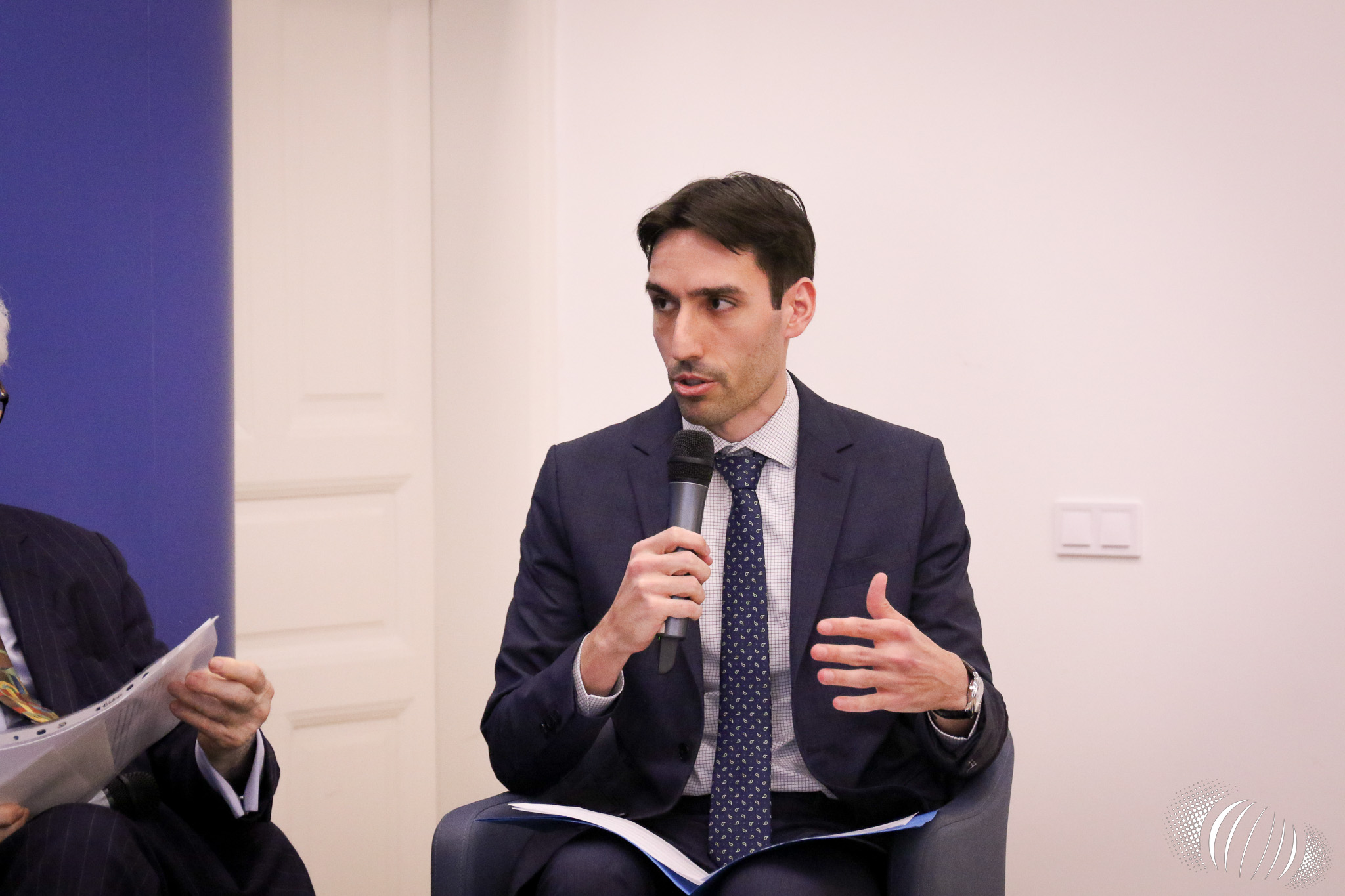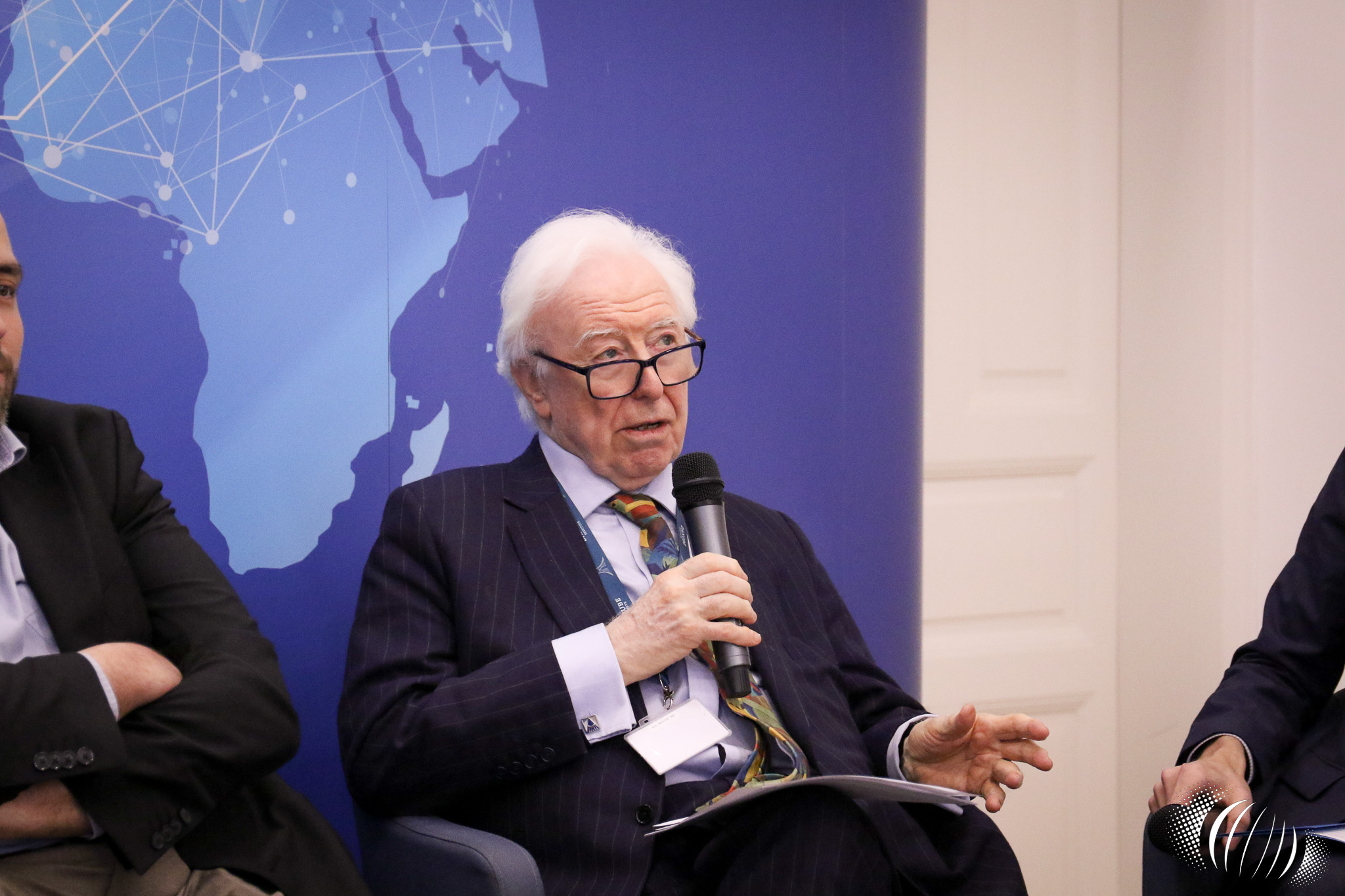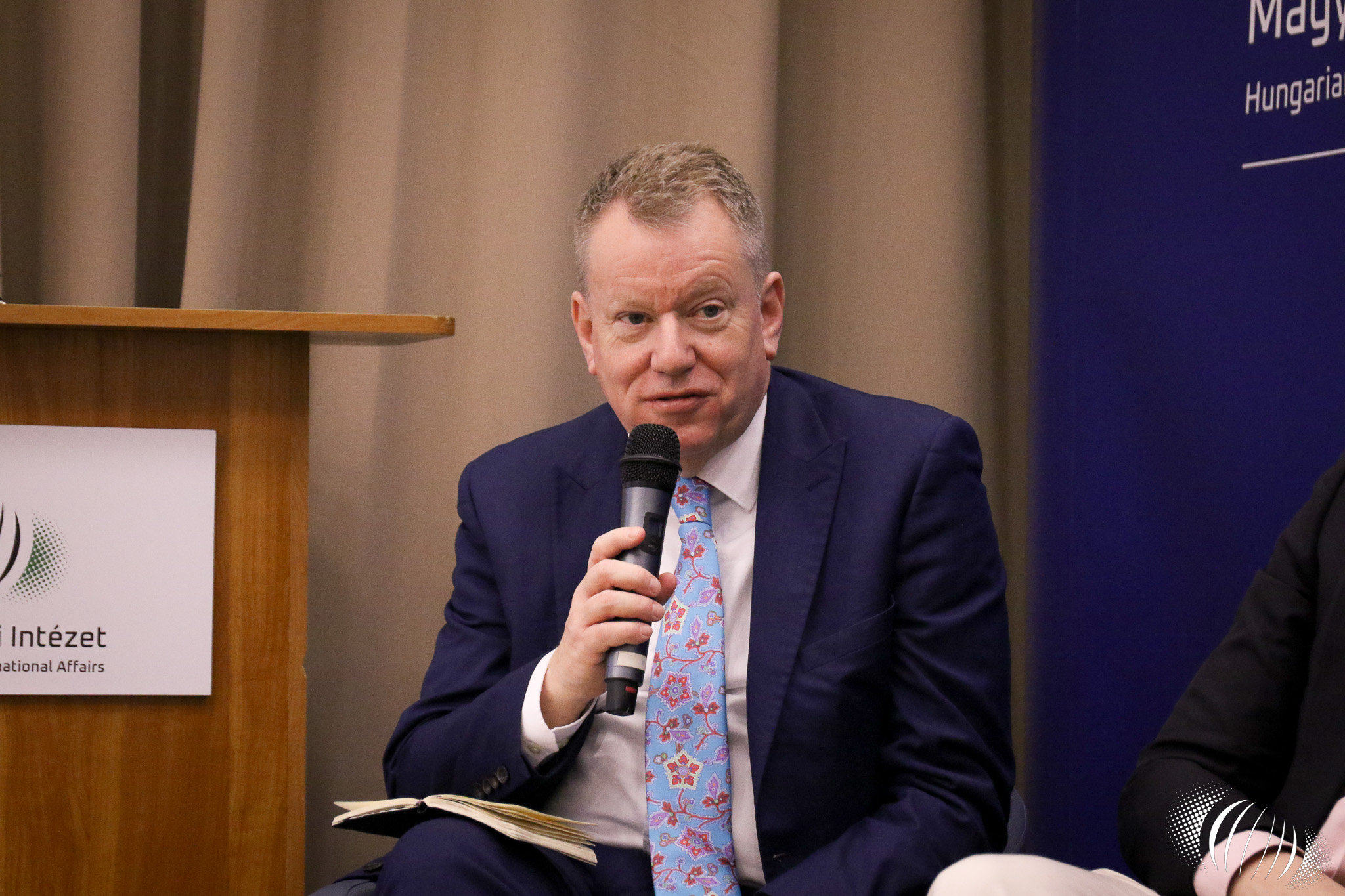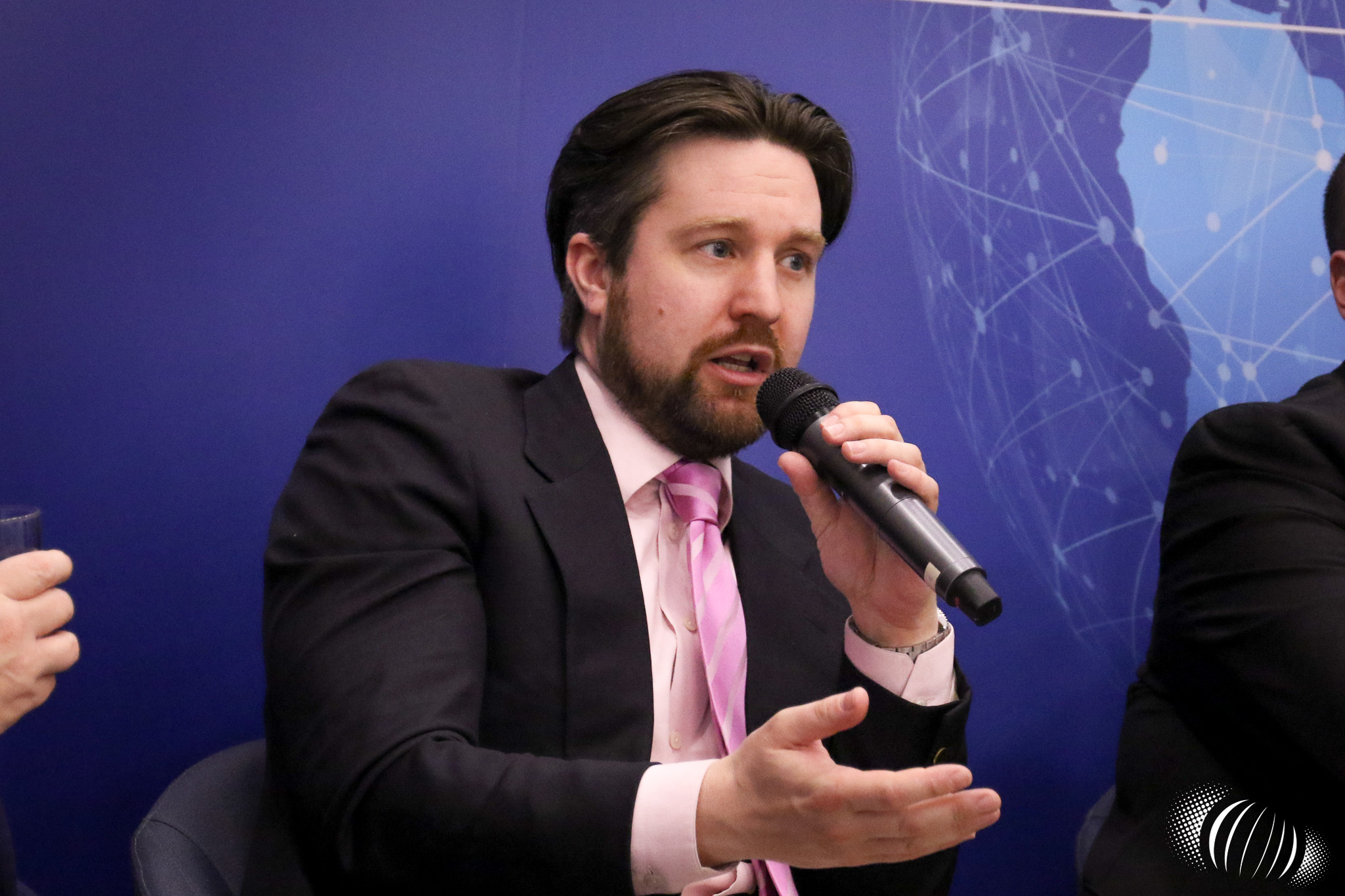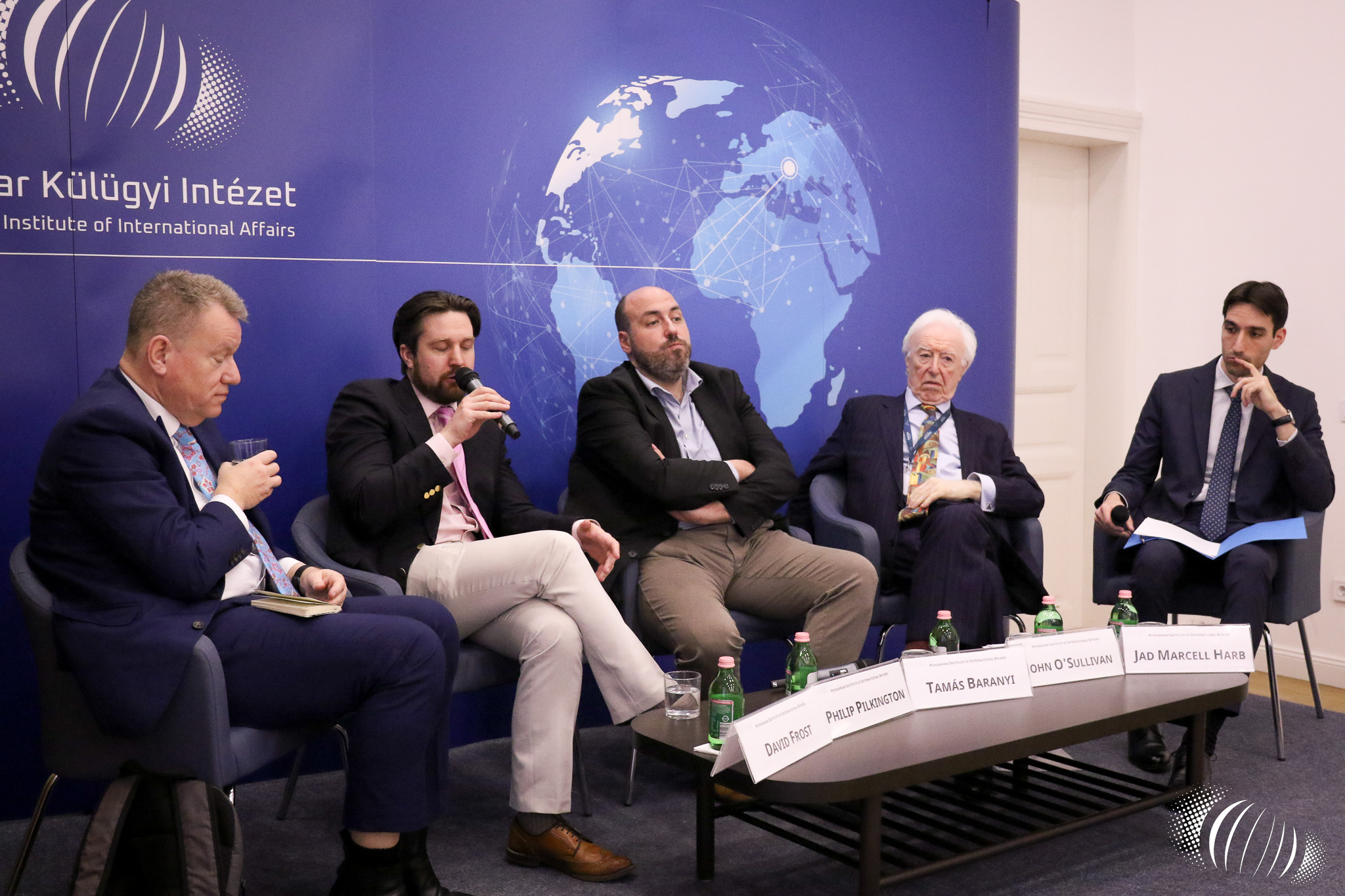On March 4, 2025, the Hungarian Institute of International Affairs (HIIA) held a roundtable discussion titled, “Starmer’s Blunders Push the US Away: Is Labour Killing the ‘Special Relationship’?” The panelists included David Frost, former Minister for European Affairs of the United Kingdom, John O’Sullivan, President of the Danube Institute, Tamás Baranyi, Director for Strategy at HIIA, and Philip Pilkington, Senior Research Fellow at HIIA. The discussion was moderated by HIIA Research Fellow Jad Marcell Harb.
Jad Marcell Harb began the event by reflecting on UK Prime Minister Keir Starmer’s recent meeting with US President Donald Trump in Washington. The meeting went surprisingly well. Trump indicated that he would not levy tariffs against the United Kingdom and gave Starmer the green light for the Chagos deal handing sovereignty over the Chagos Islands to Mauritius. He did not, however, agree to provide an American backstop for European forces on the ground in Ukraine.
David Frost and John O’Sullivan both emphasized that the expectation had been that the British prime minister would be crushed by Trump, especially given the notable tensions between Starmer’s Labour Party and members of Trump’s administration leading up to the meeting. However, the two seem to be developing a close relationship, and the new British ambassador to the United States, Peter Mandelson, is also performing extremely well. While conservatives tend to view the Labour Party as weak and starry-eyed, this is not necessarily true about the people around Starmer at the moment. They government may turn out to be more capable than previously thought.
Tamás Baranyi noted that while the two are not in agreement on everything, the United Kingdom has proved much more flexible than the rest of Europe, quickly adapting to the way the Trump administration will do business in the next four years. This could make the UK Trump’s go-to country in Europe and undermine the EU’s position. By getting closer to the US, though, the UK could make adversaries in Europe and eventually end up isolated if its stance is not American enough for the Americans but also not European enough for the Europeans. Philip Pilkington, meanwhile, stressed that the Ukraine issue is still a sticking point in the US-UK relationship.
Jad Marcell Harb also asked the panelists about US support for the conservative Reform UK party. Tamás Baranyi highlighted Elon Musk’s previous efforts to boost the party as he did with the right-wing AfD party in Germany. John O’Sullivan, however, described Reform UK as fundamentally different from the AfD. The politically isolated AfD represents 35% of German voters, and its exclusion from political life thus artificially shifts German politics to the left—American support could help rectify this. Reform, on the other hand, is simply an “amiably eccentric” party already integrated into mainstream politics, so American support for it would not alter British politics in a significant way. According to David Frost, the US could openly come out in support of Reform in the future if the party is ahead, but it is unlikely. There are still close ties between the Republicans and the Conservative Party.

